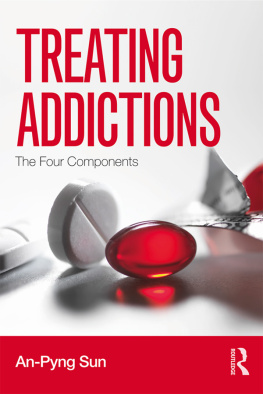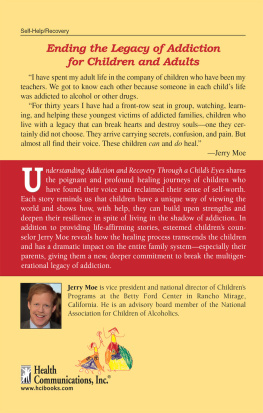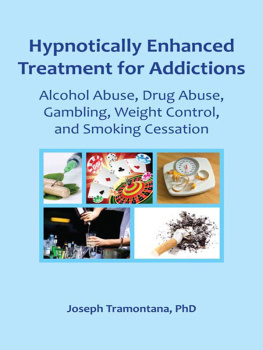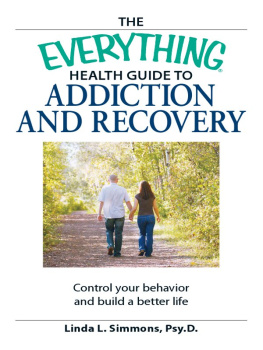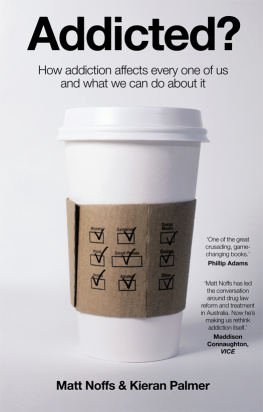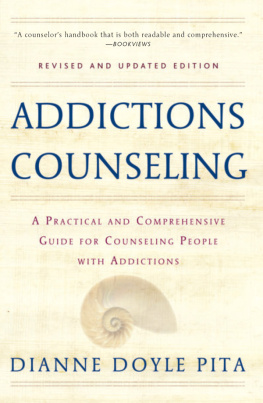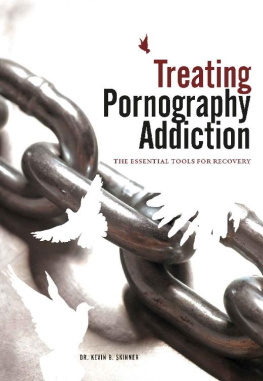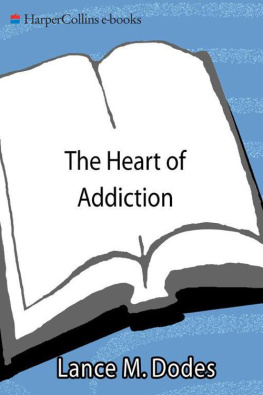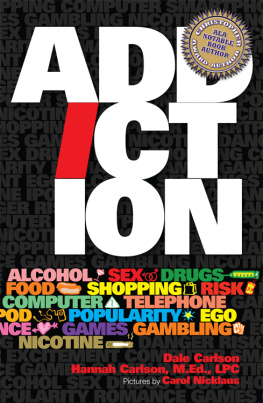Dr. Sun has developed her innovative ACQS model of addiction treatment into a comprehensive text that will be a valuable resource for potential and current clinicians. A thorough and well-researched presentation on a complex subject.
Gary L. Fisher, Professor, Center for the Application of Substance Abuse Technologies, University of Nevada, Reno
Treating Addictions: The Four Components by Dr. An-Pyng Sun provides a comprehensive approach to understanding and treating people with addictions. It provides a conceptual framework focusing on four essential components: the fundamentals of addiction, co-occurring disorders, quality of life, and macro factors. In addition to providing a critical, easy-to-read description of each of these components, each chapter offers concrete strategies of helping individuals impacted by the above issues. It is a valuable addition to the libraries of students and clinicians new to the field of addictions. I recommend it highly.
S. Lala A. Straussner, LCSW, Professor and Director, Post-Masters Program in the Clinical Approaches to the Addictions, New York University, and Founding Editor, Journal of Social Work Practice in the Addictions
Dr. Sun has written a book that is well-researched and comprehensive in its approach to educating the reader about addiction. As a co-founder of a residential treatment program for Internet addicts, I can confirm that her holistic ACQS model is excellent. I love that she captures, with compassion, the struggles of addicts and leads the reader to see, as she does, what is needed to effectively address treatment. Thankfully, she understands that behaviors can be just as addictive as substances. Her writing is easy to read and eloquent.
Hilarie Cash, PhD, LMHC, CSAT, Chief Clinical Officer and Education Director, reSTART Life, LLC
Treating Addictions: The Four Components is a timely and masterfully organized book. It is an ideal introductory textbook to those interested in addiction while offering much needed advanced content through its four components. It integrates theory, practice, research, and policy into a comprehensive and intellectually stimulating approach to addiction.
Flavio F. Marsiglia, Regents Professor, Social Work, and Director, Global Center for Applied Health Research, Arizona State University
Treating Addictions
Treating Addictions: The Four Components offers a unique and coherent understanding of addiction. The book begins with a chapter discussing the framework of addiction and the four essential components of treatmentsthe fundamentals of addiction, co-occurring disorders, quality of life, and macro factorsand subsequent chapters elaborate on each component. Most currently available addiction treatment books present knowledge and skills in separate chapters and fail to integrate all chapters within a single framework that can weave all concepts into a meaningful tapestry. Using a unified framework, this book offers students a comprehensive skill set for treating addictions.
An-Pyng Sun, PhD, is a licensed clinical social worker (LCSW) and a licensed clinical alcohol and drug counselor (LCADC). She is Professor of Social Work at University of Nevada Las Vegas (UNLV). Dr. Sun specializes in addiction treatments; her research and teaching at UNLV focus on addiction treatments, multicultural practice, and research methods.
Treating Addictions
The Four Components
An-Pyng Sun
First published 2018
by Routledge
711 Third Avenue, New York, NY 10017
and by Routledge
2 Park Square, Milton Park, Abingdon, Oxon, OX14 4RN
Routledge is an imprint of the Taylor & Francis Group, an informa business
2018 Taylor & Francis
The right of An-Pyng Sun to be identified as author of this work has been asserted by her in accordance with sections 77 and 78 of the Copyright, Designs and Patents Act 1988.
All rights reserved. No part of this book may be reprinted or reproduced or utilised in any form or by any electronic, mechanical, or other means, now known or hereafter invented, including photocopying and recording, or in any information storage or retrieval system, without permission in writing from the publishers.
Trademark notice: Product or corporate names may be trademarks or registered trademarks, and are used only for identification and explanation without intent to infringe.
Library of Congress Cataloging-in-Publication Data
Names: Sun, An-Pyng, author.
Title: Treating addictions : the four components / An-Pyng Sun.
Description: New York, NY : Routledge, 2018. | Includes bibliographical references and index.
Identifiers: LCCN 2018005210 (print) | LCCN 2018010581 (ebook) | ISBN 9781315679228 (Master Ebook) | ISBN 9781317393542 (Web pdf) | ISBN 9781317393535 ( ePub) | ISBN 9781317393528 (Mobipocket) | ISBN 9781138932487 (hbk.) | ISBN 9781138932500 (pbk.) | ISBN 9781315679228 (ebk.)
Subjects: LCSH: Substance abuseTreatment. | Substance abuse RelapsePrevention.
Classification: LCC RC564 (ebook) | LCC RC564 .S86 2018 (print) | DDC 616.86/06dc23
LC record available at https://lccn.loc.gov/2018005210
ISBN: 978-1-138-93248-7 (hbk)
ISBN: 978-1-138-93250-0 (pbk)
ISBN: 978-1-315-67922-8 (ebk)
Typeset in Adobe Caslon and Copperplate
by Apex CoVantage, LLC
To my mother, Kwei-In Chang Sun, with love and gratitude.
Addiction is an insidious disease that causes much pain and despair in the lives of many people. No one likes addiction and no one wants to live a life afflicted with addiction, including the addicted person him- or herself. Addicted individuals are keenly aware of this when they are sober; however, when they are not sober, they can hardly see or rationally tell why addiction is destructive, or how addiction creates tremendously negative consequences and tragedies in their lives. The challenging part that creates difficulty in the context for everyoneincluding the addicted patients, their families and significant others, and even the cliniciansis that many addicted peoples sober status is often short-lived and their sober times occur only sporadically and infrequently; during most of their addiction career, they are not sober.
The not sober periods can extend from intoxication, acute withdrawal, and protracted withdrawal to a lifelong struggle. Craving tends to exist even after a person stops using for a long time; relapse is always a risk. This is why addiction is considered a chronic disease. It takes repeated and prolonged exposures of alcohol, drugs, or addictive behaviors to cause neuroadaptation and neuropathway changes to the brain. Likewise, it takes time for those affected brain structures, processes, and functions to reverse to mostly, if not totally, healthy operation. In general, recovery seldom happens overnight.
Along the journey of treatment and recovery, many people are disappointed and frustrated, then give up. The family of the addicted individual is heartbroken and resents the fact that the person has taken so much from the familymaterially, physically, emotionally, and spirituallyand considers the person beyond rescue. When unable to see obvious and concrete progress in the client undergoing treatment, clinicians may not only have doubts about their own efficacy in helping the client, but also come to the conclusion that the client should not blame others, should not be so entitled, and should take more responsibility. The addicted person is likely to be the one most in pain. This person is in limbo, caught in a dilemma between staying in and staying out of addictioneither or both paths bring hurt, pain, and despair. Addicted individuals may subjugate themselves to remaining in addiction as an easy way out. This life is no life, so maybe the next life, they often say.

